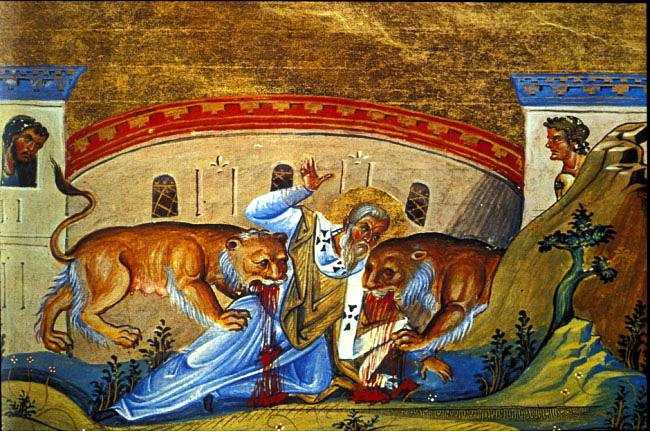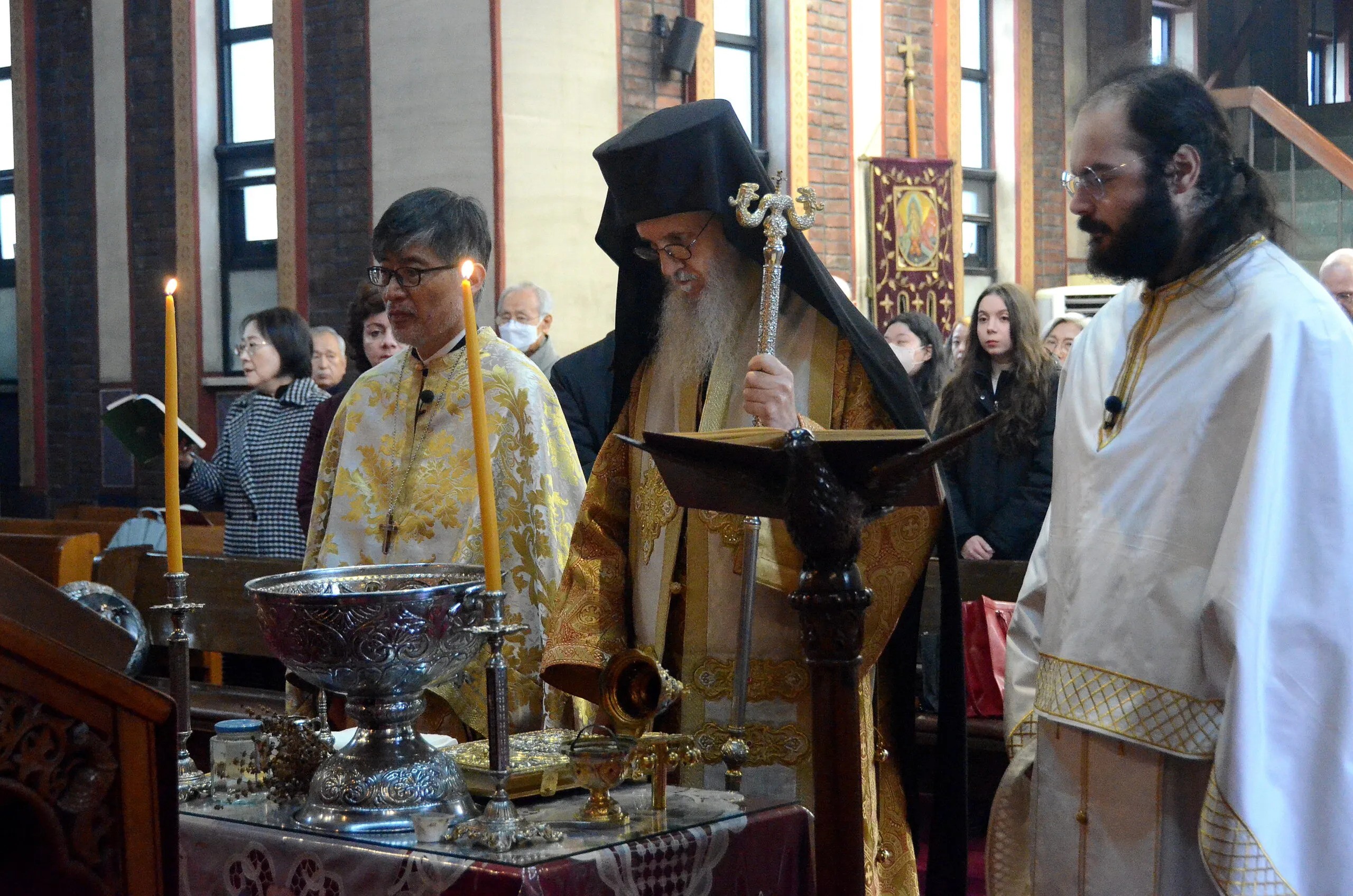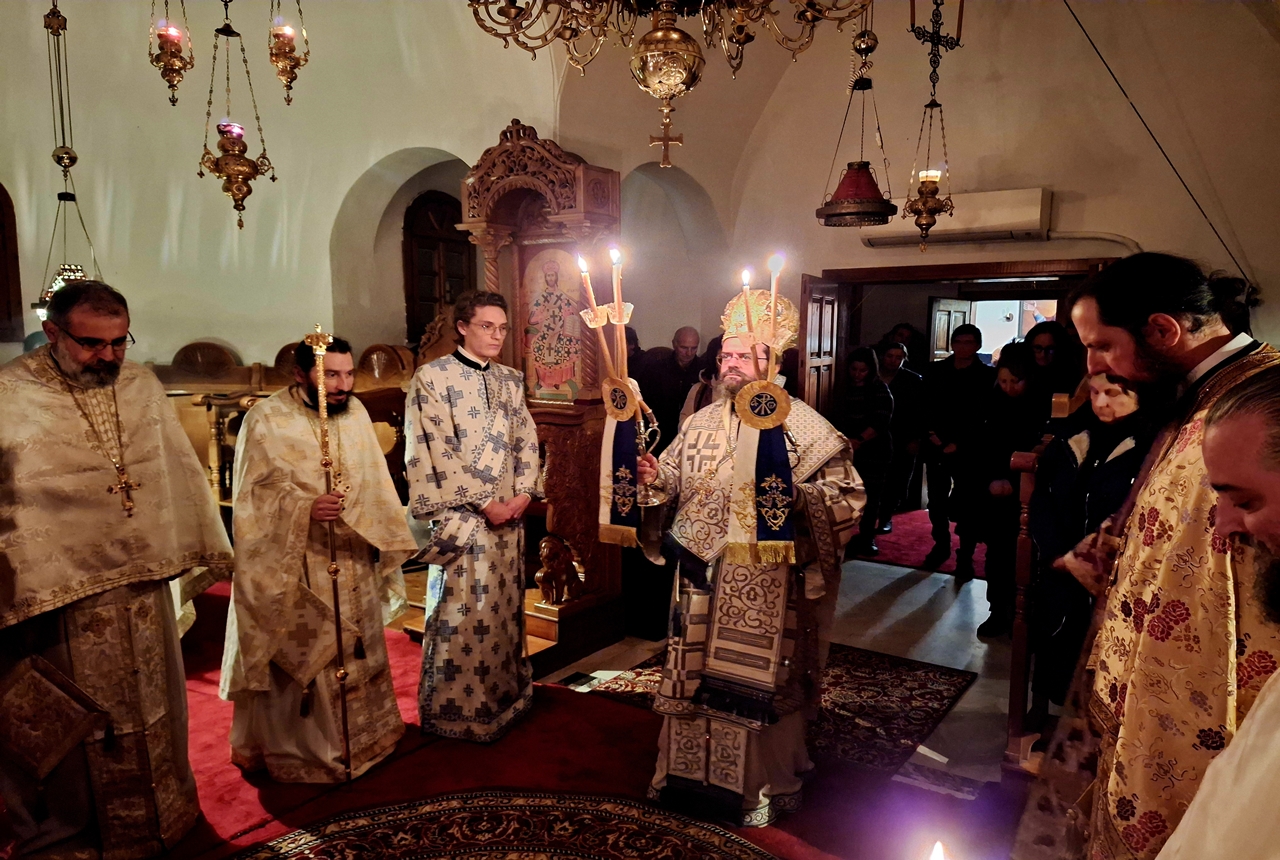Feast of the removal of the Relics of Ignatios the God-bearer (29 January)


Saint Ignatius was a disciple of Saint John the Theologian, and a successor of the Apostles, and he became the second Bishop of Antioch, after Evodus. He wrote many epistles to the faithful, strengthening them in their confession, and preserving for us the teachings of the holy Apostles. Brought to Rome under Trajan, he was surrendered to lions to be eaten, and so finished the course of martyrdom about the year 107.
The remnants of his bones were carefully gathered by the faithful and brought to Antioch. He is called God-bearer, as one who bare God within himself and was aflame in heart with love for Him. Therefore, in his Epistle to the Romans (ch. 4), imploring their love not to attempt to deliver him from his longed-for martyrdom, he said, “I am the wheat of God, and am ground by the teeth of the wild beasts, that I may be found to be the pure bread of God.”
Saint John Chrysostom has a homily in honour of the translation of the Saint’s relics (PG 50:587).
Apolytikion of Relics of Ignatius the Godbearer
Fourth Tone
As a sharer of the ways and a successor to the throne of the Apostles, O inspired of God, thou foundest discipline to be a means of ascent to divine vision. Wherefore, having rightly divided the word of truth, thou didst also contest for the Faith even unto blood, O Hieromartyr Ignatius. Intercede with Christ our God that our souls be saved.
Kontakion of Relics of Ignatius the Godbearer
Fourth Tone
Dawning from the East this day, divine Ignatius, that God-bearer praised of all, hath made the whole creation bright with his wise teachings of piety and is adorned with the beauty of martyrdom.
Source: goarch.org




